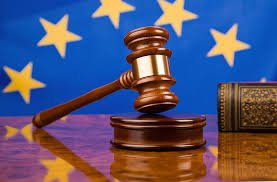Thanks to Pinhawk via Library Boy for the tip
Here’s how author Micaela Delmonte starts her article .
A Guide to Researching EU Law
The following is a guest post by Micaela DelMonte, a lawyer from the European Parliamentary Research Service who volunteered at the Law Library of Congress during May 2017.
News about Brexit and the so-called Article 50 procedure have dominated the news about the European Union (EU) lately. If you are interested in researching these or other EU-related topics, then you have come to the right place. This Guide to researching EU law provides concise information about EU law sources and where to retrieve them.
I. What is EU Law?
On March 25, 1957, the governments of France, Germany, Italy, Belgium, Netherlands, and Luxembourg signed the “Treaties of Rome”, thereby establishing what would later become the EU. The body of common rights and obligations that is binding on the EU Member States is known as the “acquis communautaire.” Within the acquis, the Treaties are considered primary law while the body of law stemming from the principles and objectives established in the Treaties is known as secondary law.
Primary Law
EU primary law consists of the founding Treaties, now after several amendments called the Treaty on European Union (TEU) and the Treaty on the Functioning of the European Union (TFEU), the amending EU Treaties, the protocols annexed to the founding and amending Treaties, as well as the Accession Treaties for new EU Member States. Referred to together as “the Treaties,” these instruments lay down the objectives of the EU, the rules for the EU institutions, and procedures for the adoption of legislative and non-legislative acts. The consolidated versions of the TEU and the TFEU, together with their annexes and protocols, resulted from the latest amendments introduced by the Treaty of Lisbon, which was signed on December 13, 2007, and entered into force on December 1, 2009.
In addition, the Treaty Establishing the European Atomic Energy Community (Euratom Treaty) continues to exist as a separate treaty.
Following the entry into force of the Treaty of Lisbon on December 1, 2009, primary law status was also given to the Charter of Fundamental Right (EU Charter).
Secondary Law……… Read on at http://blogs.loc.gov/law/2017/06/a-guide-to-researching-eu-law/




